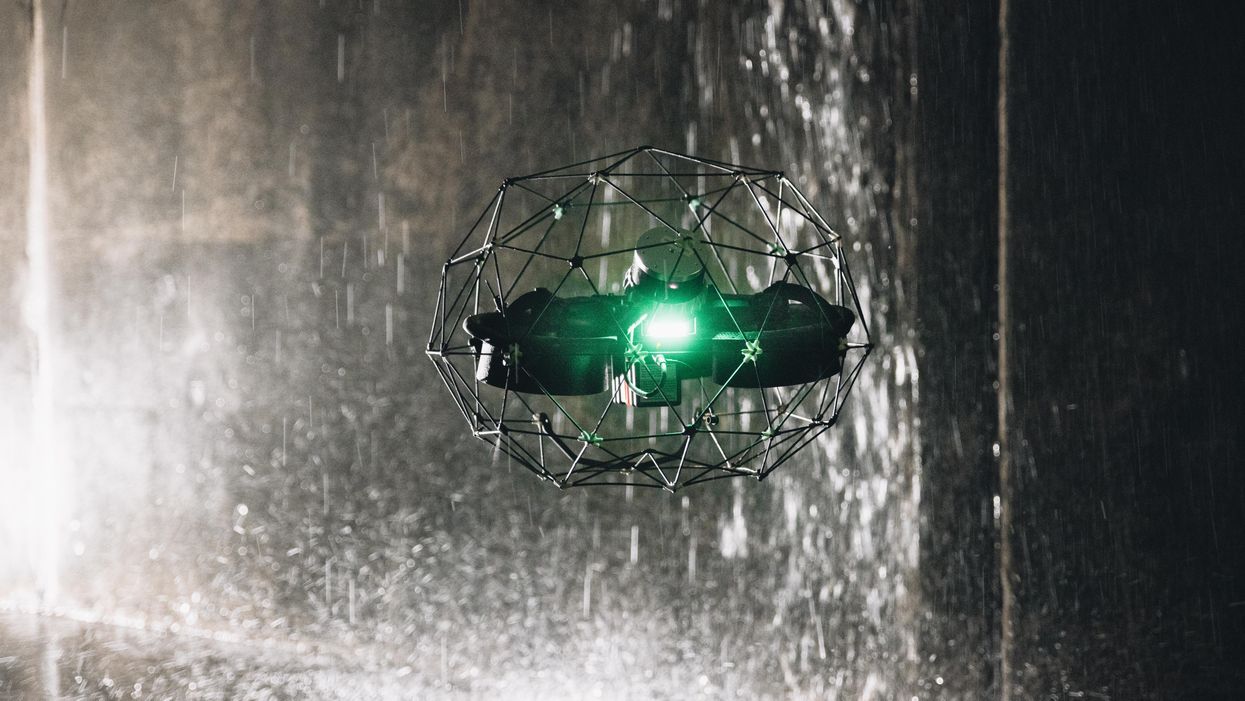Video Friday: Drone in a Cage

Video Friday is your weekly selection of awesome robotics videos, collected by your friends at IEEE Spectrum robotics. We also post a weekly calendar of upcoming robotics events for the next few months. Please send us your events for inclusion.
Enjoy today's videos!
After four years of development, Flyability has announced the Elios 3, which you are more than welcome to smash into anything you like.
The Elios 3 is the single biggest project that Flyability has ever undertaken," said Adrien Briod, CTO of Flyability. If you think of the Elios 2 as your classic flip phone, only designed to make phone calls, the Elios 3 is the smartphone. It's made to be customized for the specific demands of each user, letting you attach the payload you need so you can use the tool as you like, and allowing it to grow and improve over time with new payloads or software solutions."
[ Flyability ]
We get that Digit is good at walking under things, but if Agility wants to make the robot more relatable, it should program Digit to bump its head like 5 percent of the time. We all do it.
[ Agility ]
Skybrush is a drone-show management platform that's now open source, and if drone shows aren't your thing, it's also good for coordinating multiple drones in any other way you want. Or you can make drone shows your thing!
We share Skybrush because we are proud of it, and because we envision a growing community around it, consisting of enthusiastic and motivated experts and users all around the world who can join our mission to create something great for the future. The drone industry is evolving at light speed, our team alone is too small yet to keep pace with it. But we have a core that is rock solid and we know for sure that great things can be built on top of it.
[ Skybrush ]
This happened back in the fall of 2021, but it's still cool seeing the full video of a Gremlin launch, flight, and capture sequence.
[ Dynetics ]
NASA's InSight lander touched down in the Elysium Planitia region of Mars in November of 2018. During its time on the Red Planet, InSight has achieved all its primary science goals and continues to hunt for quakes on Mars.
[ Insight ]
This kite-powered drone is blowing my mind.
[ Kite Propulsion ]
A friendly reminder that Tertill is anxious to massacre the weeds in your garden.
[ Tertill ]
I am not a fan of this ElliQ commercial.
[ ElliQ ]
We are excited to announce that the 2022 edition of the Swiss Drone Days will take place on 11-12 June in Dubendorf/Zurich. The event will feature live demos including autonomous drone racing...in one of the largest drone flying arenas in the world, spectacular drone races by the Swiss drone league, presentations of distinguished speakers, [and] an exhibition and trade fair.
[ Drone Days ]
Enjoy 8 minutes of fast-paced, extremely dramatic, absolutely mind-blowing robot football highlights.
[ RoboCup ]
This week's GRASP on Robotics seminar is from Katherine Kuchenbecker at the Max Planck Institute for Intelligent Systems, on haptics and physical human-robot interaction.
A haptic interface is a mechatronic system that modulates the physical interaction between a human and their tangible surroundings. Such systems typically take the form of grounded kinesthetic devices, ungrounded wearable devices, or surface devices, and they enable the user to act on and feel a remote or virtual environment. I will elucidate key approaches to creating effective haptic interfaces by showcasing several systems my team created and evaluated over the years."
[ UPenn ]
This Lockheed Martin Robotics Seminar is from Xuesu Xiao from The Everyday Robot Project at X, on Deployable Robots that Learn.
While many robots are currently deployable in factories, warehouses, and homes, their autonomous deployment requires either the deployment environments to be highly controlled, or the deployment to only entail executing one single preprogrammed task. These deployable robots do not learn to address changes and to improve performance. For uncontrolled environments and for novel tasks, current robots must seek help from highly skilled robot operators for teleoperated (not autonomous) deployment. In this talk, I will present three approaches to removing these limitations by learning to enable autonomous deployment in the context of mobile robot navigation, a common core capability for deployable robots. Building on robust autonomous navigation, I will discuss my vision toward a hardened, reliable, and resilient robot fleet which is also task-efficient and continually learns from each other and from humans."
[ UMD ]